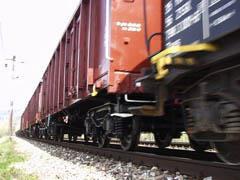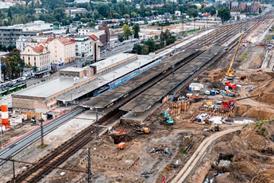
EUROPE: The holding company model adopted for the incumbent national railways in Austria and Germany is permitted under European directives, according to a non-binding opinion delivered by European Court of Justice Advocate Generate Niilo Jääskinen on September 6.
The European Commission is taking action against five member states for alleged infringements of Directive 91/440. This requires some essential functions of incumbent railways including capacity allocation and the setting of access charges to be outsourced to independent managers to ensure non-discriminatory access.
The Commission argues that the directive does not permit the operating activities and infrastructure manager to be part of the same holding company, unless additional measures are taken to ensure independence, and believes Austria and Germany have not taken these steps. However, the Advocate General's opinion is that the directive does not require such institutional separation, and that the additional measures are not in the directive. As a result he recommends that the court should dismiss the actions against the two countries.
In contrast, the Advocate General agrees that Portugal, Spain and Hungary are not complying fully with the directive. In Portugal the state retains an essential role in decision-making at CP, and has not taken measures to ensure that the infrastructure accounts balance. The Advocate General says Spain is in in breach of 91/440 because the state reserves to right to set access charges, the system is not transparent and there is discrimination against new entrants.
Hungary does not require the infrastructure accounts of MÁV and GySEV to balance, and lacks incentives to reduce costs and ensure access charges are equal to the cost of providing the network. However the delegation of traffic management to the incumbent is permitted.
Monika Heiming, Executive Director of infrastructure managers' association EIM said the Advocate General's opinion 'provides new impetus to the discussions on the fourth railway package and confirms the urgent need to reform the existing EU rules on the independence of infrastructure managers in Europe.'
Libor Lochman, Executive Director of the Community of European Railway & Infrastructure Companies, said the Advocate General has 'shed light on an important issue and confirmed what CER has been saying about separation requirements for a long time'. The opinion is 'an important signal not only for the institutions that will receive soon the EC proposal of a fourth railway package, but also for all those member states that recently took a decision to separate their rail holdings not because factual economic evidence suggested it, but because of the pressure of the European Commission services based on a biased interpretation of the rail acquis'.
The judges in the case will now begin their deliberations, before issuing a final ruling which is expected in spring 2013.

















